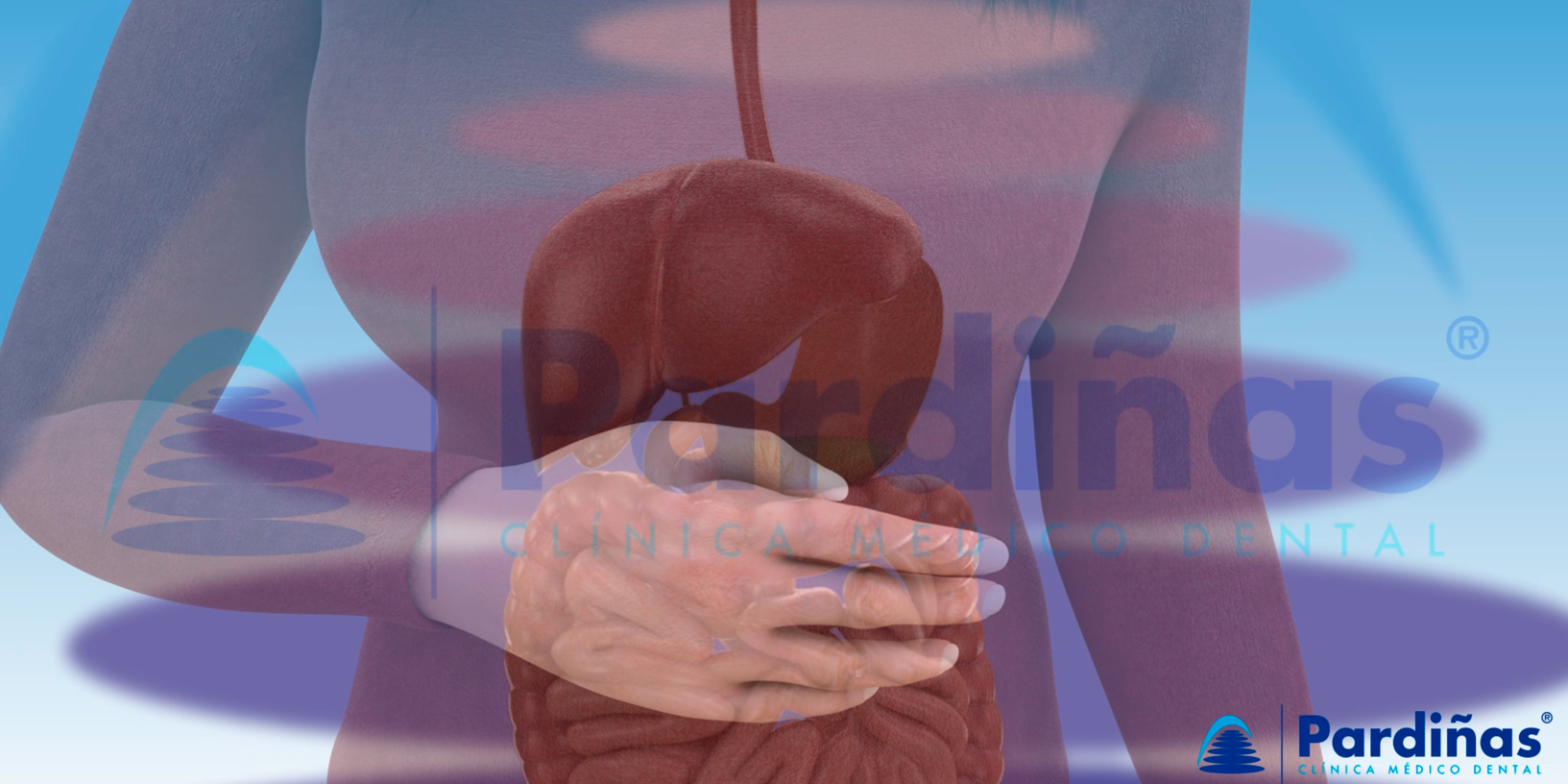Periodontal disease - What it is, causes and symptoms of pyorrhea
With this generic name is designated a series of diseases that affect the support apparatus of the teeth.
The most frequent of this group is the so-called adult periodontal disease, commonly known as "pyorrhea", which is the main cause of loss of teeth at this stage of life if it is not treated properly and in early stages.
Many people totally or partially edentulous are because of this disease that is characterized by a progressive destruction of the tissues that surround the roots of the teeth, that is, the periodontal ligament and the bone of the jaws where the dental roots are inserted. There comes a time when the loss of bone around the roots is such that the teeth begin to move and as they run out of the support, they end up falling, often without any pain.
A) What is periodontitis and how does it develop?
Periodontitis, periodontal disease or pyorrhea, is a chronic oral disease that is characterized by a progressive destruction of the tissues that surround the roots of the teeth, that is, the periodontal ligament and the jaw bone where the roots of the teeth are inserted. teeth.
It occurs mainly as a result of plaque and tartar buildup on the teeth and gums, leading to chronic inflammation.There is also an individual (genetic) predisposing factor that is key, which explains why patients with very little tartar can develop periodontal disease, and vice versa, patients with a lot of tartar hardly have bone loss in the jaws.
Many people are totally or partially edentulous are because of this disease. There comes a time when the bone loss around the roots is such that the teeth begin to move, and as they run out of foundations they end up falling out, often without any pain.
B) Poor dental hygiene, the main cause of periodontitis
It is mainly caused by bacteria that accumulate in tartar and dental plaque, which sticks around the teeth and if we do not remove it properly by brushing and flossing, the plaque hardens and turns into tartar. , and can also be introduced below the gum. Tartar is more difficult to remove and provides an environment conducive to bacterial growth. These bacteria create toxins that damage and develop an infectious inflammatory process, which involves the destruction of the tissues that support the teeth.
C) Other risk factors in periodontitis
Stress is a factor that can influence the overall health of the body, including oral health. There is a two-way relationship between stress and periodontitis, which means that stress can affect the development and progression of periodontal disease, and in turn, the presence of periodontitis can increase stress levels. Below, we detail the main aspects of this relationship:
C1) Smoking favors the development of pyorrhea
Tobacco is one of the most significant risk factors in the development and progression of periodontitis. Smoking or using tobacco products in any form can have a negative impact on oral health and increase the severity of periodontal disease. Here are some ways that tobacco affects periodontitis:
- Compromises the immune response: Smoking weakens the immune system and decreases the body's ability to fight infections, including bacterial infections that occur in the gums. As a result, harmful bacteria present in plaque can multiply more easily, leading to further inflammation and destruction of periodontal tissues.
- Interferes with blood circulation: Tobacco reduces blood flow, making it difficult for oxygen and nutrients to reach periodontal tissues, which decreases their ability to heal and regenerate, delaying healing.
- Increases the accumulation of bacterial plaque: Tobacco affects the composition of saliva, reducing its antimicrobial properties. This facilitates the growth of bacteria and the formation of bacterial plaque on the teeth and gums.
- Masks the symptoms: Smoking can mask the symptoms of periodontitis, making it difficult to detect it at an early stage. Smokers' gums can often appear less swollen due to vasoconstriction caused by smoking, which can mask redness and bleeding gums. As a result, smokers may not seek dental care until the disease has progressed significantly.
C2) Genetic predisposition
If you have a family history of the disease, you are more likely to be at risk, although it does not mean that one will necessarily develop the disease. Environmental factors and proper oral health care play a critical role in preventing periodontitis, even in genetically susceptible individuals.
- Inflammatory response: Genes can influence the body's inflammatory response to the presence of bacteria and plaque in the gums. Some people may have a more pronounced inflammatory response, which leads to further destruction of periodontal tissues. These genes may influence the production of cytokines and other inflammatory mediators that affect the severity of periodontitis.
- Structure and function of tissues: Genetics can also influence the structure and function of periodontal tissues. Some people may have lower bone density or lower gum tissue strength, which can make them more susceptible to bone loss and periodontal tissue damage.
- Interaction between genes and environmental factors: There is a complex interaction between genes and environmental factors, such as oral hygiene, smoking, and systemic diseases. For example, an individual with a genetic predisposition may be at increased risk of developing periodontitis if they also smoke or do not maintain good oral hygiene.

C3) Stress also influences periodontal disease
Stress is a factor that can influence the overall health of the body, including oral health. There is a two-way relationship between stress and periodontitis, which means that stress can affect the development and progression of periodontal disease, and in turn, the presence of periodontitis can increase stress levels. Below, we detail the main aspects of this relationship:
- Immune response: Chronic stress can weaken the immune system, which can affect the body's ability to fight infection, including bacterial infections that occur in the gums. A compromised immune response can facilitate the growth of bacteria in the gums and aggravate the inflammation associated with periodontitis.
- Changes in oral care habits: Stress can affect a person's oral care habits. In stressful situations, a person may neglect their oral hygiene, such as forgetting to brush their teeth properly or failing to floss regularly. These neglects in oral hygiene can increase the risk of bacterial plaque accumulation and aggravate periodontitis.
- Increased sensitivity to disease: Chronic stress can make a person more susceptible to disease in general, including periodontitis. Stress can alter the body's inflammatory response and hinder the ability of periodontal tissues to heal and regenerate. This may contribute to a greater severity of periodontitis and a less effective treatment response.
It is important to note that periodontitis itself can also cause stress and have a negative impact on a person's emotional well-being. Tooth loss, bad breath, and cosmetic problems associated with the disease can cause concern and affect quality of life.

C4) Bruxism, clenching or grinding the teeth
Stress can manifest itself in the body through bruxism (teeth grinding or clenching) and muscle tension in the jaw and mouth. Bruxism can trigger excessive wear on the teeth and put additional pressure on the periodontal tissues, which can contribute to the progression of periodontitis.
C5) Pregnancy and hormonal changes
During pregnancy, the body undergoes a series of hormonal changes that can affect oral health and increase the risk of developing or worsening periodontitis. This phenomenon is known as periodontal disease of pregnancy or gestational periodontitis.

C6) Diabetes, another risk factor in pyorrhea
Diabetes and periodontitis have a two-way relationship. On the one hand, poorly controlled diabetes can increase the risk of developing periodontitis due to its negative impact on the immune system and the ability to heal. On the other hand, the presence of periodontitis can make it difficult to control blood sugar levels, since chronic inflammation in the gums can interfere with insulin regulation.

C7) Rheumatoid arthritis
Rheumatoid arthritis, an autoimmune disease that affects the joints, has been linked to periodontitis. There is evidence that oral inflammation in periodontitis can trigger a systemic inflammatory response that contributes to the development and progression of rheumatoid arthritis.
C8) Kidney diseases
People with chronic kidney disease are at increased risk of developing periodontitis. Compromised kidney function can affect the immune response and the healing capacity of periodontal tissues, increasing susceptibility to bacterial infection and periodontal damage.

C9) Medications that can influence periodontitis
Some medications can have side effects that affect oral health and can increase the risk of developing periodontitis. These effects may include alterations in the composition of saliva, decreased salivary flow, changes in the immune response, or increased risk of infections. Here are some common medications that have been associated with periodontitis:
- Anticonvulsants and antihypertensives: Some anticonvulsant and antihypertensive medications, such as phenytoin, valproic acid, or angiotensin-converting enzyme (ACE) inhibitors, have been linked to an increased risk of developing gingival hyperplasia. This condition is characterized by excessive growth of the gums, which can make oral hygiene difficult and contribute to the accumulation of bacterial plaque and the development of periodontitis.
- Immunosuppressants: Immunosuppressive drugs, such as corticosteroids and some drugs used to treat autoimmune diseases, can weaken the immune system. This can reduce the body's ability to fight bacterial infections in the gums and increase the risk of developing periodontitis.
- Medications that reduce saliva production: Some medications, such as tricyclic antidepressants, antihistamines, muscle relaxants, and medications for Parkinson's disease, can reduce saliva production. Saliva plays a crucial role in protecting oral tissues and in removing bacteria and food particles. Decreased salivary flow can facilitate bacterial growth and contribute to the development of periodontitis.
- Drugs that affect bone metabolism: Some medications used in the treatment of osteoporosis and other conditions related to bone metabolism, such as bisphosphonates, can have side effects that affect oral health. These medications can interfere with the bone remodeling process of the jaw bone, which can increase the risk of osteonecrosis of the jaw and contribute to the development of periodontitis.

D) Symptoms of periodontitis or periodontal disease
The symptoms of periodontitis can range from mild to severe. Some common signs include:
- Red, swollen or sensitive gums.
- Bleeding from the gums during brushing or flossing, or even spontaneous bleeding in more serious cases.
- Receding gums or gums pulling away from the tooth, which can make the teeth appear longer and cause gaps or black triangles to appear between the teeth.
- Bad breath or persistent halitosis.
- Tooth sensitivity to cold or heat.
- Mobility of the teeth or changes in the way they fit together when biting.
- Appearance of abscesses, with suppuration between the teeth and gums.
It is important to note that periodontitis can progress without obvious symptoms, so regular visits to the dentist for proper evaluation are essential.

E) How to prevent periodontal disease
Periodontitis can be largely prevented with good oral hygiene. Here are some tips to prevent the disease:
- Brush your teeth well at least twice a day . This will cause the bacteria film to be removed. You must use a brush in good condition.
- Use dental floss or an interproximal brush, to eliminate bacteria from between the teeth, and where the brushes do not reach.3. Rinse with an antimicrobial mouthwash to help reduce plaque bacteria.
- Eat a balanced diet. Choose a variety of foods from the basic food groups, such as grains, fruits, vegetables, meat, fish, and dairy products, such as milk, cheese, or yogurt. Limit meals between meals.
- Avoid smoking and limit alcohol consumption.
- Visit your dentist regularly. It is important to have regular checkups, and professional cleanings (prophylaxis).

F) Periodontitis can affect other parts of the body
Although the mouth is the main focus on which periodontitis affects, this disease can also have consequences in other parts of the body.
F1) Cardiovascular diseases
Periodontitis has been associated with an increased risk of cardiovascular diseases, such as heart disease, stroke, and atherosclerosis. Chronic inflammation in the gums can contribute to systemic inflammation, which in turn can affect blood vessel health and increase the risk of cardiovascular disease.
F2) Respiratory diseases
An association between periodontitis and respiratory diseases such as pneumonia and chronic obstructive pulmonary disease (COPD) has been observed. Inhalation of bacteria from the oral cavity can reach the lungs and trigger respiratory infections. Periodontitis can also aggravate pre-existing respiratory conditions due to systemic inflammation and additional bacterial load.

F3) Degenerative diseases: Alzheimer's and Dementia
The relationship between periodontitis and Alzheimer's is an area of active research and possible links between these two conditions are still being explored. Some studies suggest an association between periodontal disease and an increased risk of developing Alzheimer's disease or dementia. Both periodontitis and Alzheimer's are associated with chronic inflammation and impaired immune response. Periodontitis causes an inflammatory response in the gums due to the accumulation of bacteria in dental plaque. This inflammation can generate a systemic inflammatory response that affects the brain.
